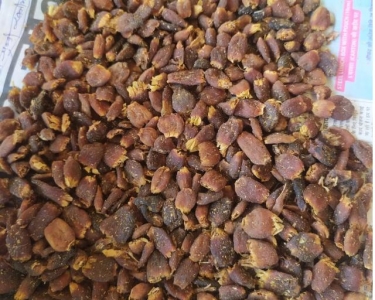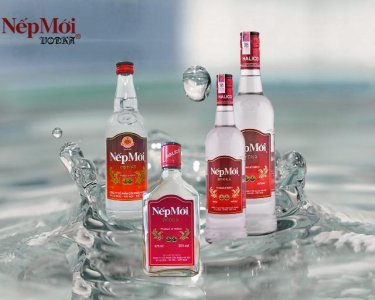Skin care
Couldn't find the product you want?
Fill out this form to request the product.
Products You May Like
Export from Cuba
The economy of Cuba is a planned economy, which means that the largest part of the country's production is owned and controlled by the government. The main sectors of the Cuban economy are industry, agriculture and tourism. Agriculture represents about 10 percent of the country's GDP and 20 percent of the population are employed in this sector. The main crops cultivated in Cuba are tobacco, coffee, sugarcane, citrus, beans, rice, livestock and potatoes.
The main mineral resource of Cuba is nickel, representing 21 percent of total exports. Other important mineral resources are cobalt, iron ore, steel, marble and petroleum. Cuba also produces cement and asphalt.
Tourism in an important part of the Cuban economy and it is one of the major sources of revenue for the country. Cuba is a popular touristic destination due to its favorable climate, beaches and a mixture of different cultures.
Cuba is the world's 136th largest exporter, the main exports being sugar, nickel, refined fuels, pharmaceuticals and tobacco. Cuba also exports beverages, iron and steel, fish and wood. The most important Cuba's export destinations are the UK, Spain, the Netherlands, Canada,Venezuela and China.
Import to Cuba
Cuba had a difficult period in its economy, but now the government works on reforming the economy thus contributing to the economic growth. The government of Cuba approved a plan for economic changes in April 2011. As a result, limited economic reforms (allowing people to buy electronics, buy and sell used cars) were implemented. Also the government gave the possibility for entrepreneurs to be "self-employed".
Reforms equally included permission for the private ownership, sale of new vehicles, sale of agricultural products directly to hotels and adopting a new foreign investment law.
It should be mentioned that Cuba’s economy is quite dependent on imports, more than 80 percent of all food consumed in Cuba being imported. In this context the United States is the main food supplier for the country.
Cuba mainly imports vehicles, motor parts, machinery and equipment, food, vegetable oils, cereals, chemicals, fuel and diesel engines. Cuba’s main sources of import are Venezuela (which represents 30 percent of the total imports), China, Spain, Brazil, the US, Mexico, Canada, Italy, Germany, Vietnam and Russia.
Enjoy looking your best at all times? Great looks demand constant care with quality skin care products and what's the better place to find them than at Export Portal? We present you a huge choice of the best skin care products from the sellers from all around the globe.
Whether you have dry, sensitive, aging, oily or combination skin, we've got loads of cosmetic solutions to choose from. With us you will find loads of natural face care for your skin type and targeted goal: best anti aging cream for preserving the youth of your skin longer, skin products for men who care about healthy looks, herbal skin care if hypoallergenic cosmetics is your choice, best moisturizers and body lotions, organic baby skin care for your kids and more. Take great care of your skin with us!
Regular daily skin care is the path to having great looking skin, and Export Portal is your source for the products that you need to promote healthy skin every day. While we often think of the face first when it comes to caring for the skin, the skin on the body also needs attention. Find a wide array of treatments for specialized treatments for concerns such as blemishes and scars, acne, stretch marks and cellulite to keep skin looking clean and healthy. Here we present the best skin care products like cleansers, toners, moisturizers and more from top brands and feature a wide selection of formulas for all skin types at affordable prices.
With us you will find skin care for all seasons: whatever the weather, we've got a huge range of beauty products to help keep your skin happy and healthy all year. We specialize in providing only the best products that care for skin from head to toe.
Customs requirements of Cuba
Cuba Customs Contacts
Website: http://www.aduana.co.cu/
Email: publico@agr.aduana.cu
Telephone:(537)855-5466-71
Address: 6 st y 39 st, Plaza de la Revolución, La Habana, CP 10400
Cuba is situated where the Caribbean Sea, the Gulf of Mexico and the Atlantic Ocean meet. It is located south of Florida and the Bahamas, west of Haiti and north of Jamaica. The country is a member of the Bolivarian Alternative for the Americas, Latin American Integration Association, United Nations, Association of Caribbean States and Mercosur.
Export/Import Requirements
Goods can be imported into Cuba only by government entities and joint ventures holding permits for the specific goods in question. Agents can handle goods on consignment for licensed importers, but they cannot import on their own account and they cannot conduct distribution operations. Joint ventures with foreign participation will generally obtain their import permits through their Cuban partners, but the right to import specific categories of products may be included in negotiations when seeking approval of the joint venture agreement.
Import duties are generally managed and paid for by the Cuban importer. Following an update in 2008, the simple average tariff on approximately 5,400 commodities was reduced from 11.5% to 10.4% for most favoured nation (MFN) countries, according to the Ministerio del Comercio Exterior (MINCEX), Ministry of Foreign Trade. The maximum MFN tariff is 30%. Cuba applies the MFN rate to goods originating in Canada and other countries with which it has bilateral agreements. Non MFN general tariff averages 17.9%. Cuba is also a member of the Latin American Integration Association (ALADI). Import tariff classifications are based on the Harmonized System (HS) at the 8-digit level. Entities with foreign partners may be granted duty free status for some or all of those products as part of their economic association or joint venture agreement.
A license is required for the export or reexport to Cuba of all items subject to the Export Administration Regulations (EAR).
Source:
http://www.bis.doc.gov/index.php/policy-guidance/country-guidance/sanctioned-destinations/cuba
Active Filters
-
Keywords:
- Clear all





